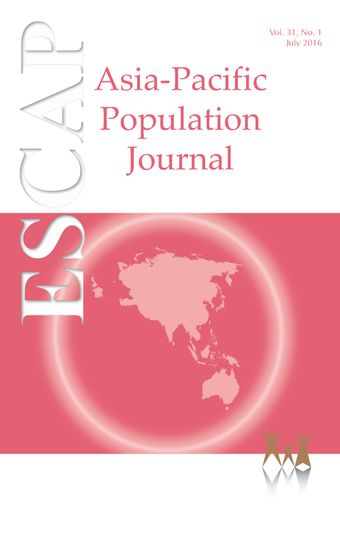-
Bargaining power and the household division of labour: Evidence from 2008 China time-use survey
- Source: Asia-Pacific Population Journal, Volume 31, Issue 1, Oct 2016, p. 63 - 85
-
- 24 Oct 2016
Abstract
Analysis of time use patterns and the role of bargaining power enhance our understanding of household dynamics and factors impacting women’s labour market participation in China. It is a useful tool for policymakers seeking to promote gender equality and improve women’s well-being. Using a sample of 13,505 couples from the 2008 China National Time Use Survey (CTUS), this study examines the relationship between bargaining power and the amount of time allocated to household and care work and market work. It is found that wives spend a longer time working in a day (556 minutes) than husbands (520 minutes). The findings also show that the impact of bargaining power on women’s time in unpaid work is complicated. Husbands with higher bargaining power (as proxied by the education gap between spouses) spend less time on housework and more time on market work. However, the education gap does not influence women’s time spent on household work, while the bargaining power proxied by age gap between spouses does not affect the husband’s household work time. Having young children increases the time spent in housework for both spouses, but the wife’s housework increases considerably more than her husband’s (89.3 minutes vs. 29.8 minutes). The presence of older, retired household members reduces the wife’s housework and increases her market work, indicating their support in domestic chores performed by women.
© United Nations





